Singapore is one of several countries in Southeast Asia and East Asia that observes the Lunar New Year as an official public holiday. In the Year of the Dragon 2024, Singaporeans will have a three-day holiday from February 10-12, which falls on the first to third day of the lunar calendar, according to the Public Holidays website.
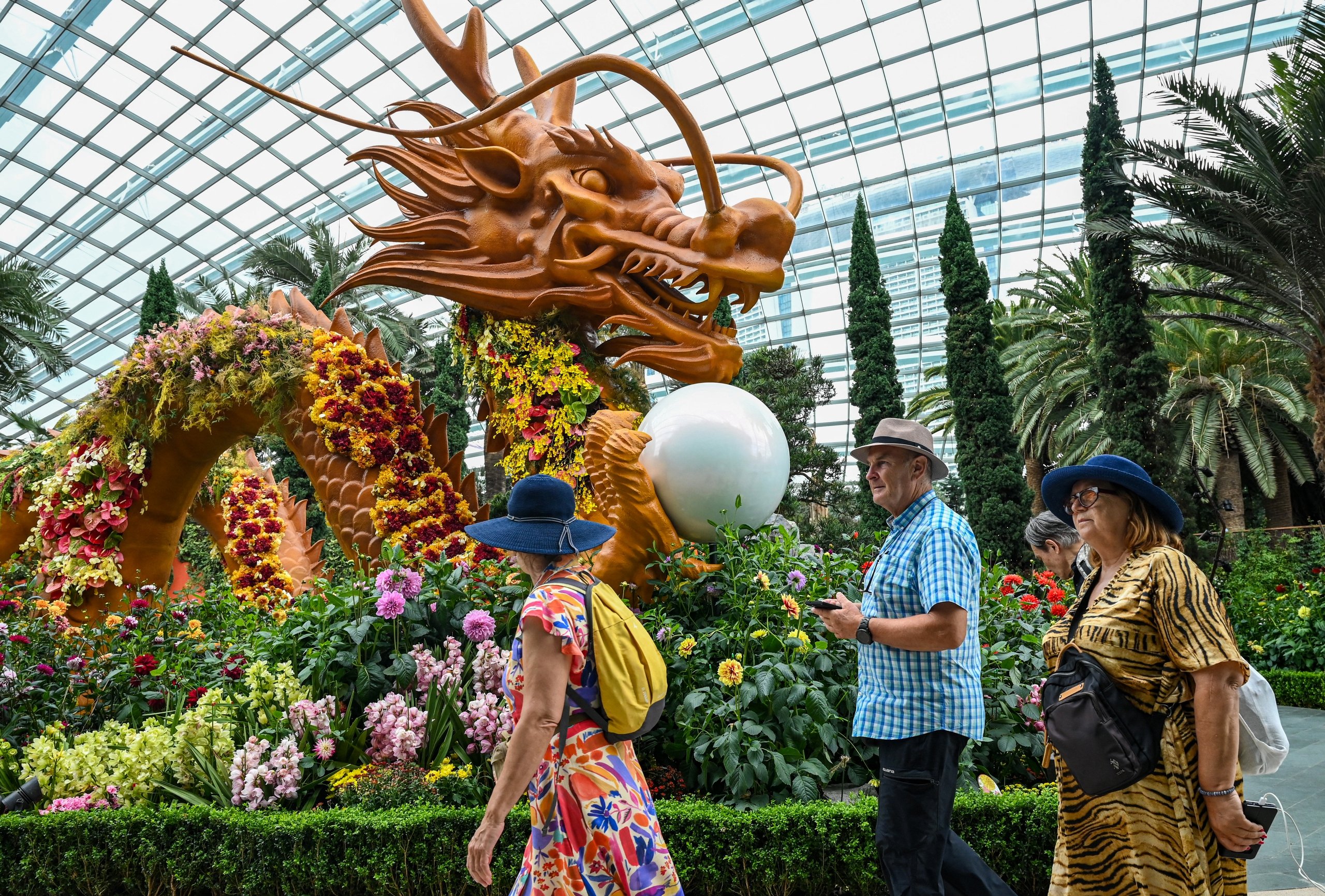
Dragon model at Gardens by the Bay park in Singapore ahead of Lunar New Year 2024
According to information from the National Library Board of Singapore, a week before Tet is Xiaonian, which includes the custom of sending the Kitchen Gods to heaven to report to the Jade Emperor about the family’s past year. People have the custom of offering trays of cakes, candies or sticky rice dishes to the Kitchen Gods with the hope that the Kitchen God will report good things about the family to the Jade Emperor. Some people even smear honey or rock sugar on the mouth of the Kitchen God statue.
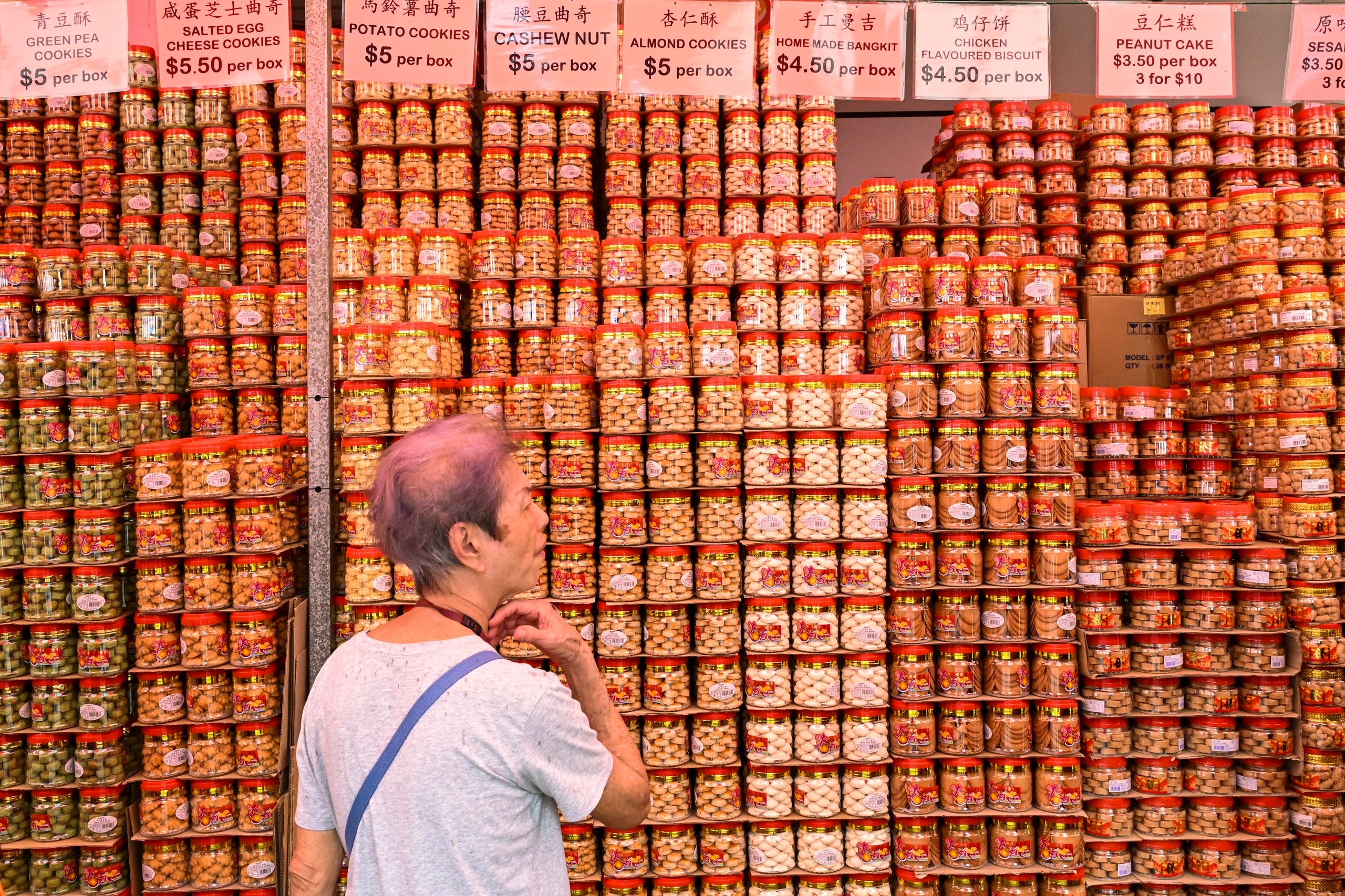
Singaporeans go shopping for Tet cakes
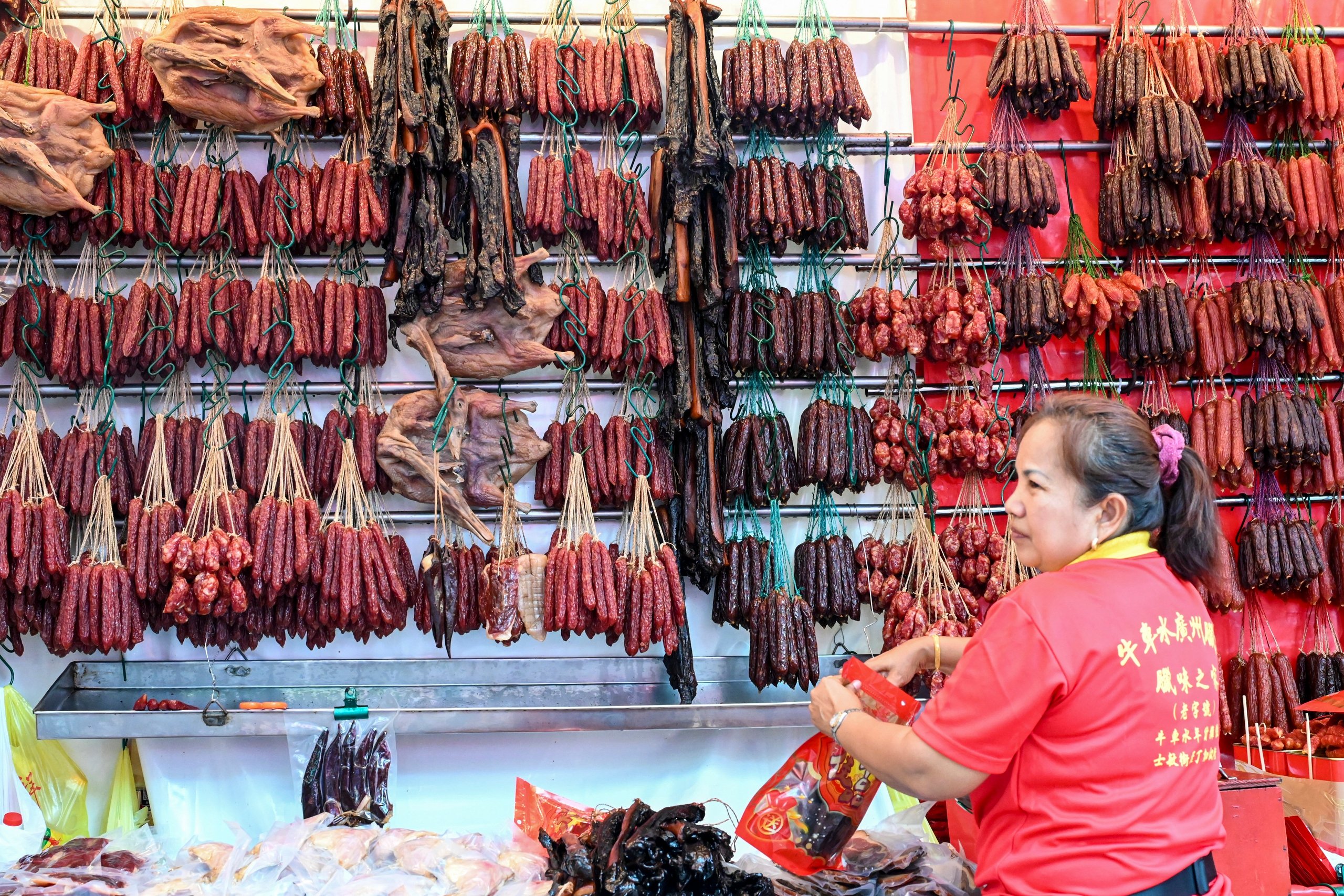
Chinese sausage stall in Singapore's Chinatown ahead of Lunar New Year 2024
On these days, people often set off fireworks to send off the gods and start cleaning their houses. In Singapore, people have been banned from setting off fireworks since 1972 for safety reasons.
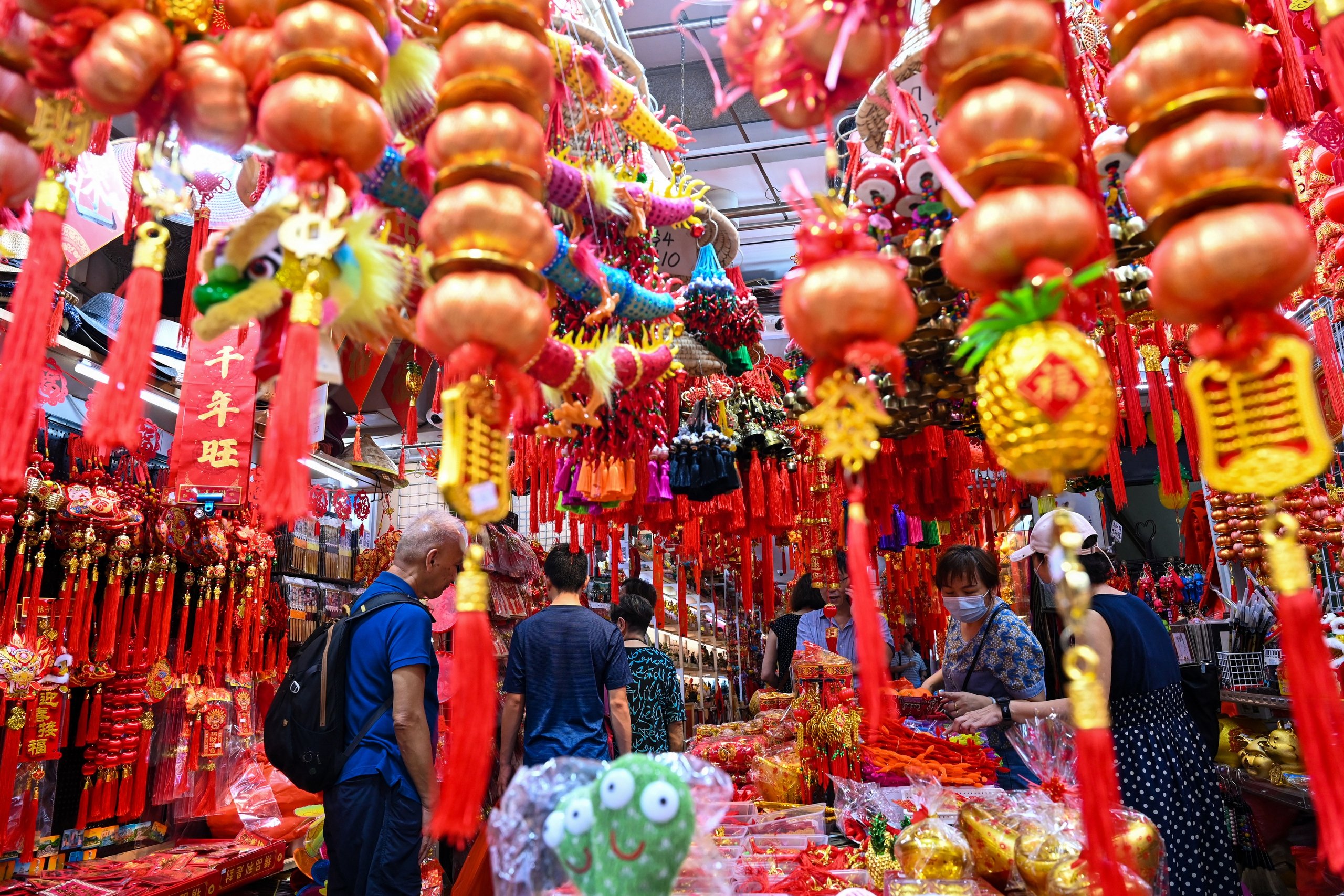
A shop selling Tet decorations in Chinatown in Singapore on January 26.
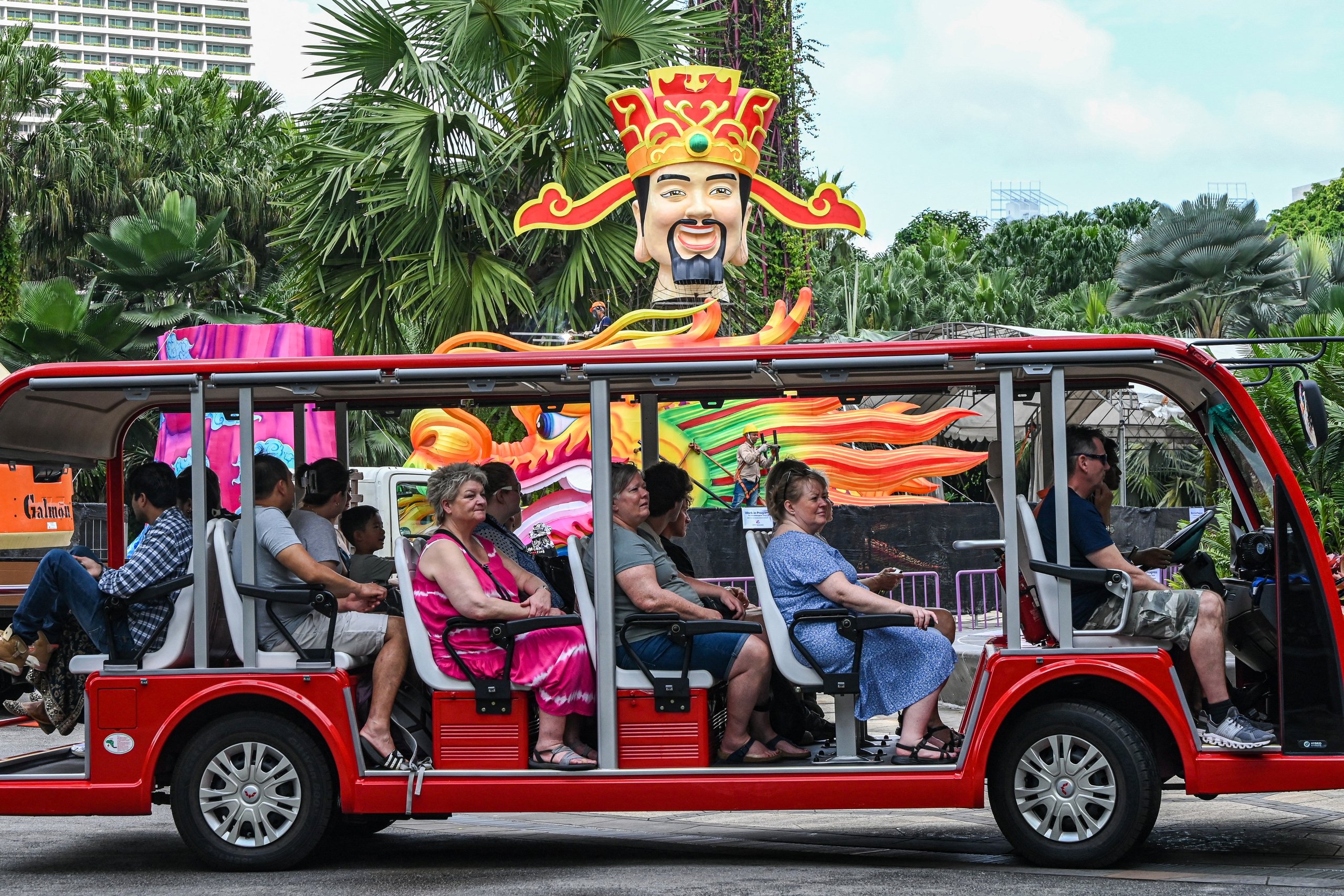
Tourists walk past the God of Wealth statue at Gardens by the Bay on January 15.
Before the New Year, houses are cleaned and some places use bamboo leaves to sweep the house because it is believed that this will help to ward off evil spirits. According to custom, sweeping is taboo on the first day of the year because of fear that good luck will be swept away, so some people even hide their brooms.
To decorate their homes, Singaporeans buy kumquat trees and flowers, along with red parallel sentences placed at the door. People also buy new clothes and get new hairstyles before Tet because some people believe that cutting hair means cutting off luck, so it is taboo to cut hair in the new year.
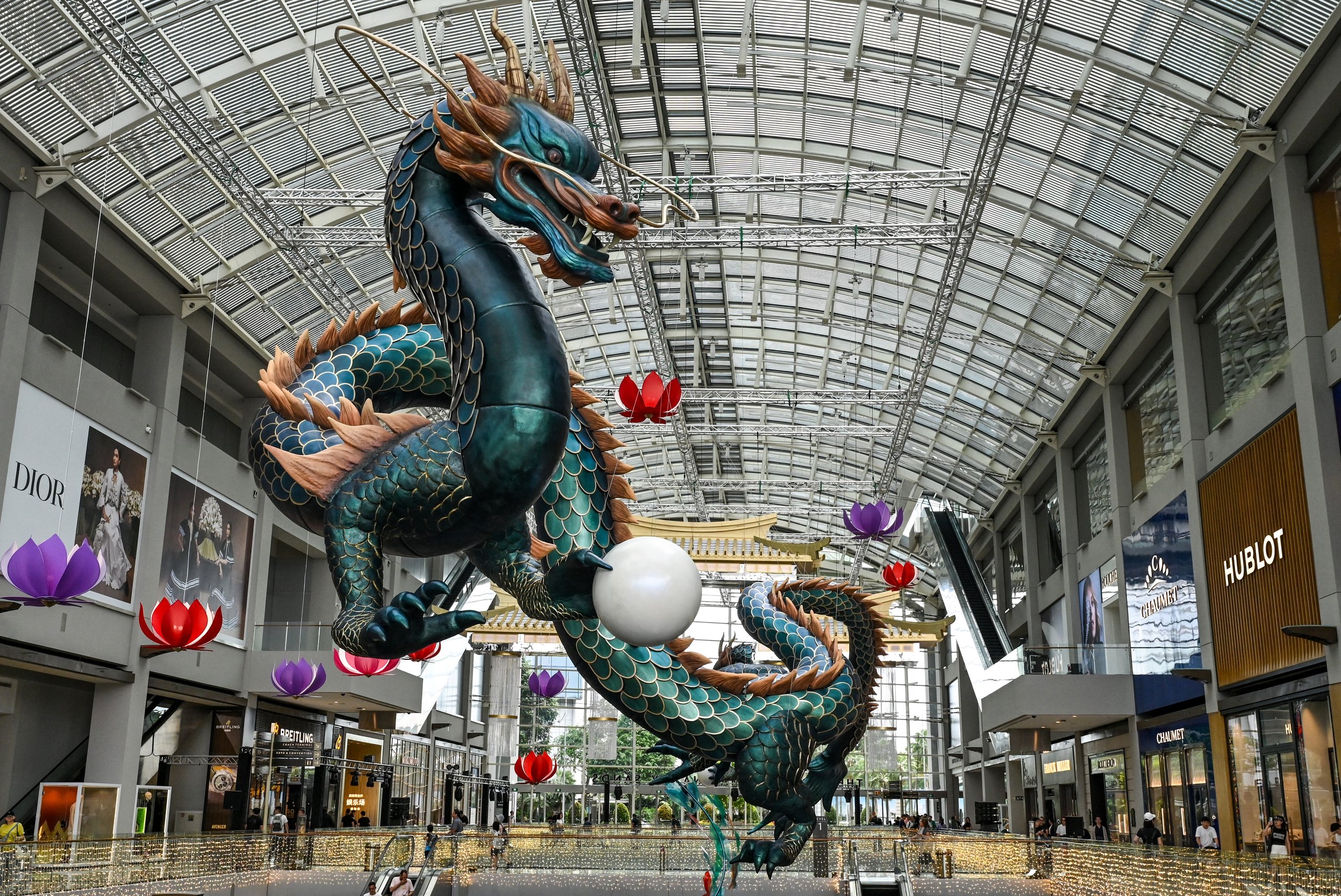
Giant dragon model inside the shopping mall at Marina Bay Sands, Singapore
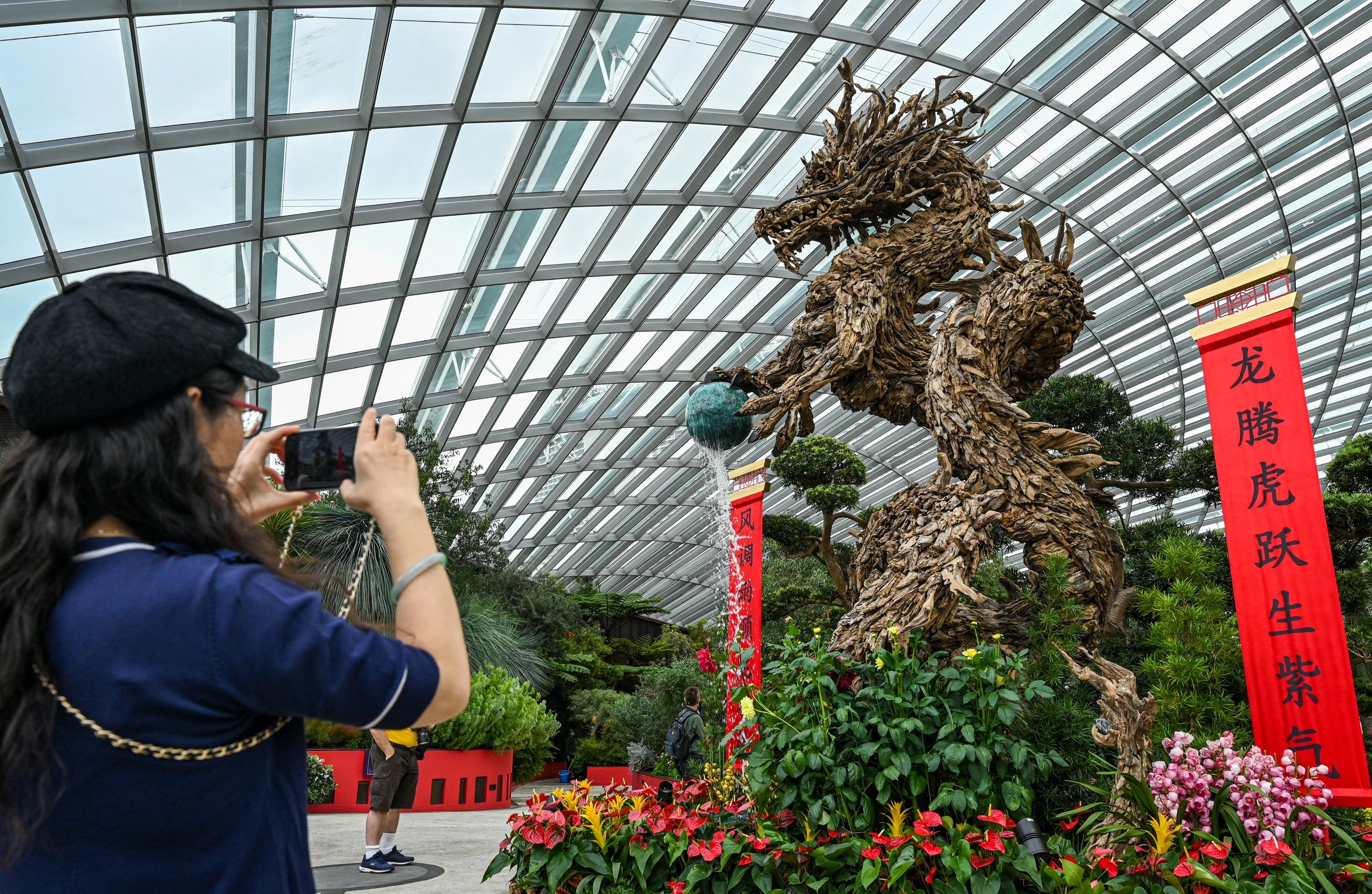
Tourists take photos of wooden dragon statue at Gardens by the Bay
On the other hand, the last day of the year is also reserved for settling debts of the year, especially for business people, because it is not good to leave debts until the new year. After closing the books, the bosses may give their employees a bonus. Two other days that are occasions for settling debts in Chinese culture are the Duanwu Festival (the 5th day of the 5th lunar month) and the Mid-Autumn Festival (the 15th day of the 8th lunar month).
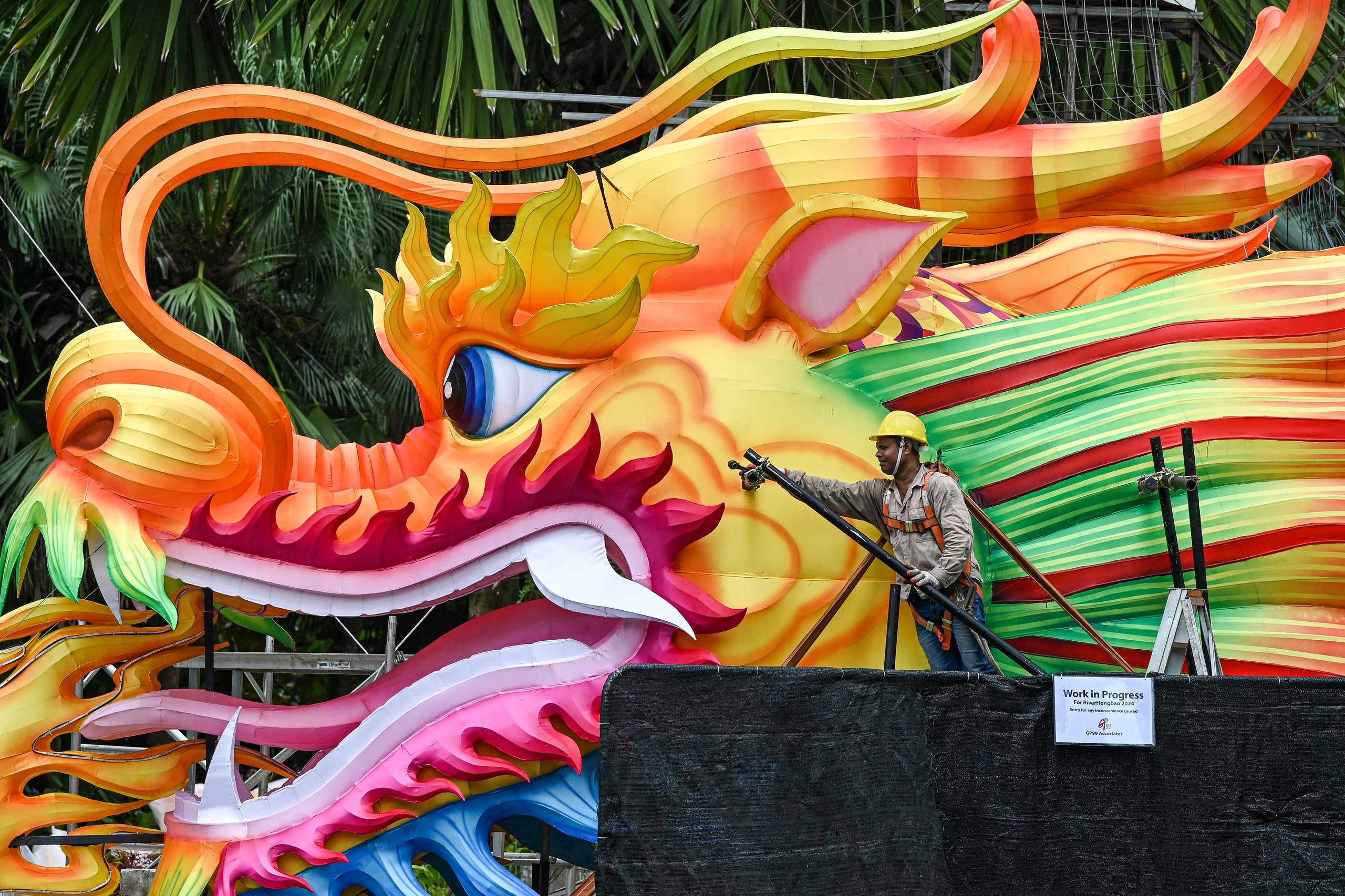
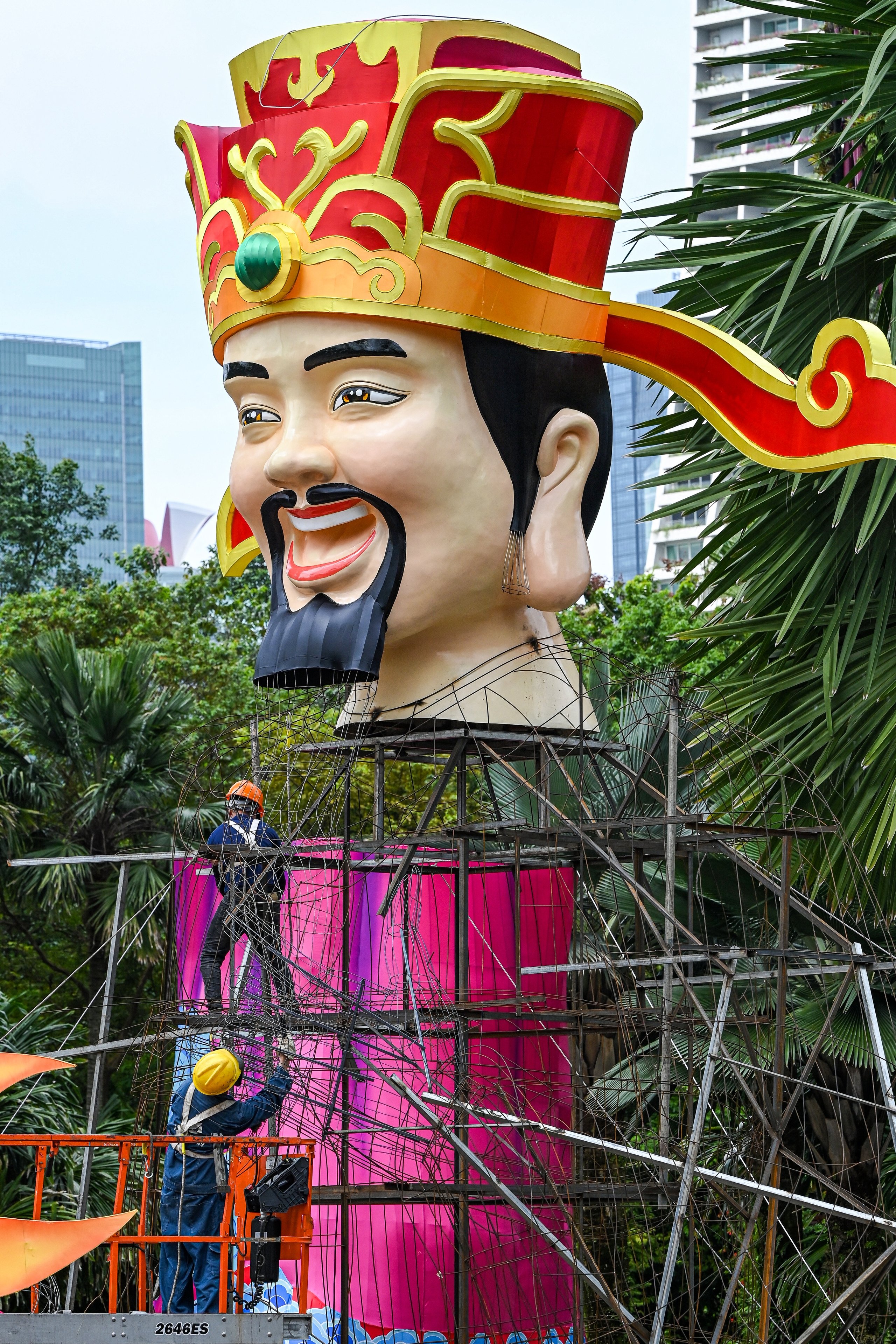
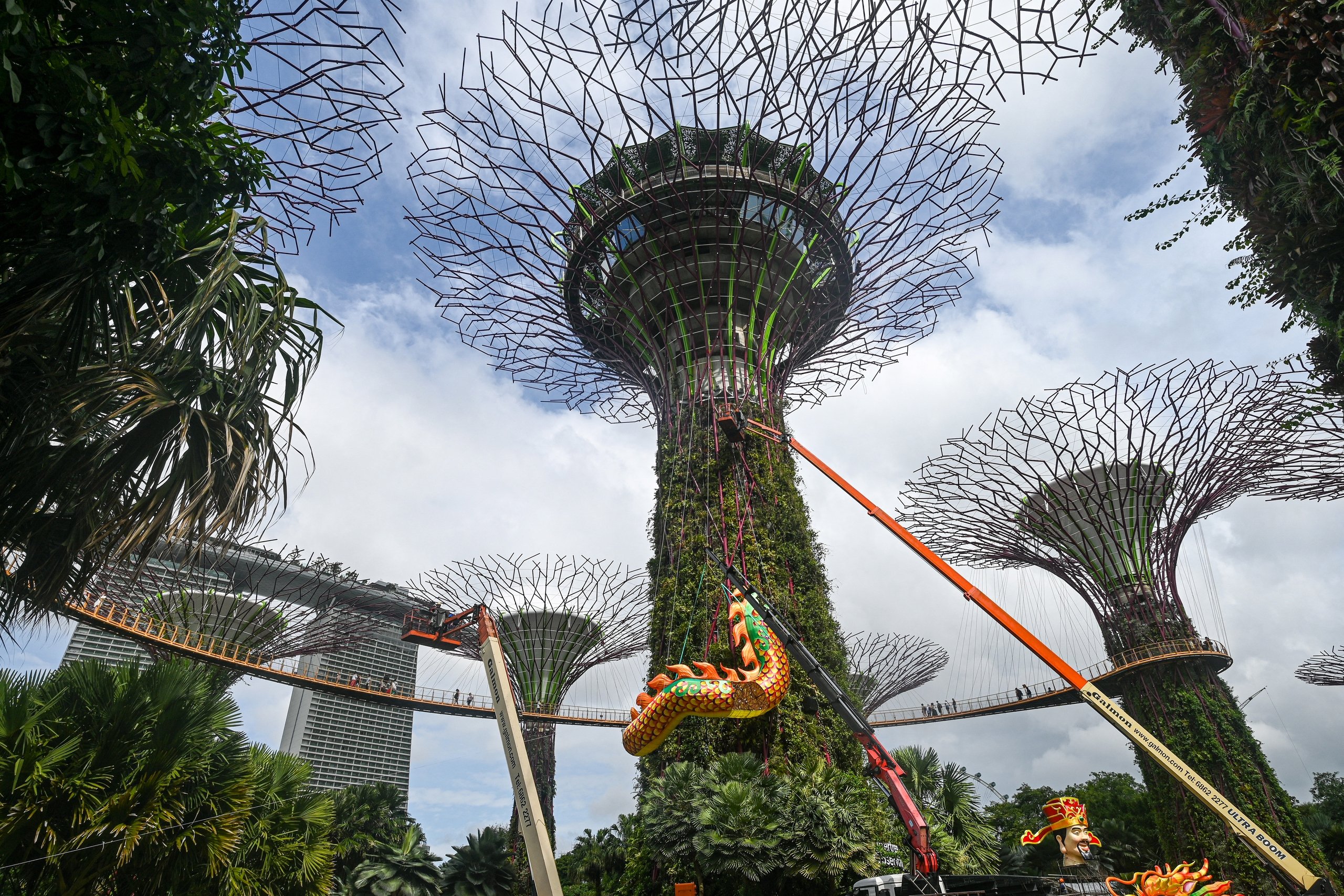
Dragon and God of Wealth statues are being rushed to completion at Gardens by the Bay in Singapore before Lunar New Year.
In recent years, some Singaporeans have been depositing money into their bank accounts on the first day of spring (this year, it falls on February 4, or December 25). They believe that this will help increase their wealth and bring them good luck. Some people also wear clothes that match their age and prepare a certain amount of money to deposit in savings to bring more luck.
Before New Year’s Eve, families will burn incense to welcome their ancestors back to reunite with a tray of food, fruit and tea. On New Year’s Eve, families will gather around the dinner table and burn incense to offer to their ancestors. This meal has great significance, showing the connection and love of family members. On this day, sons will often return to their parents’ home to celebrate New Year’s Eve while married daughters will return to their husband’s home.
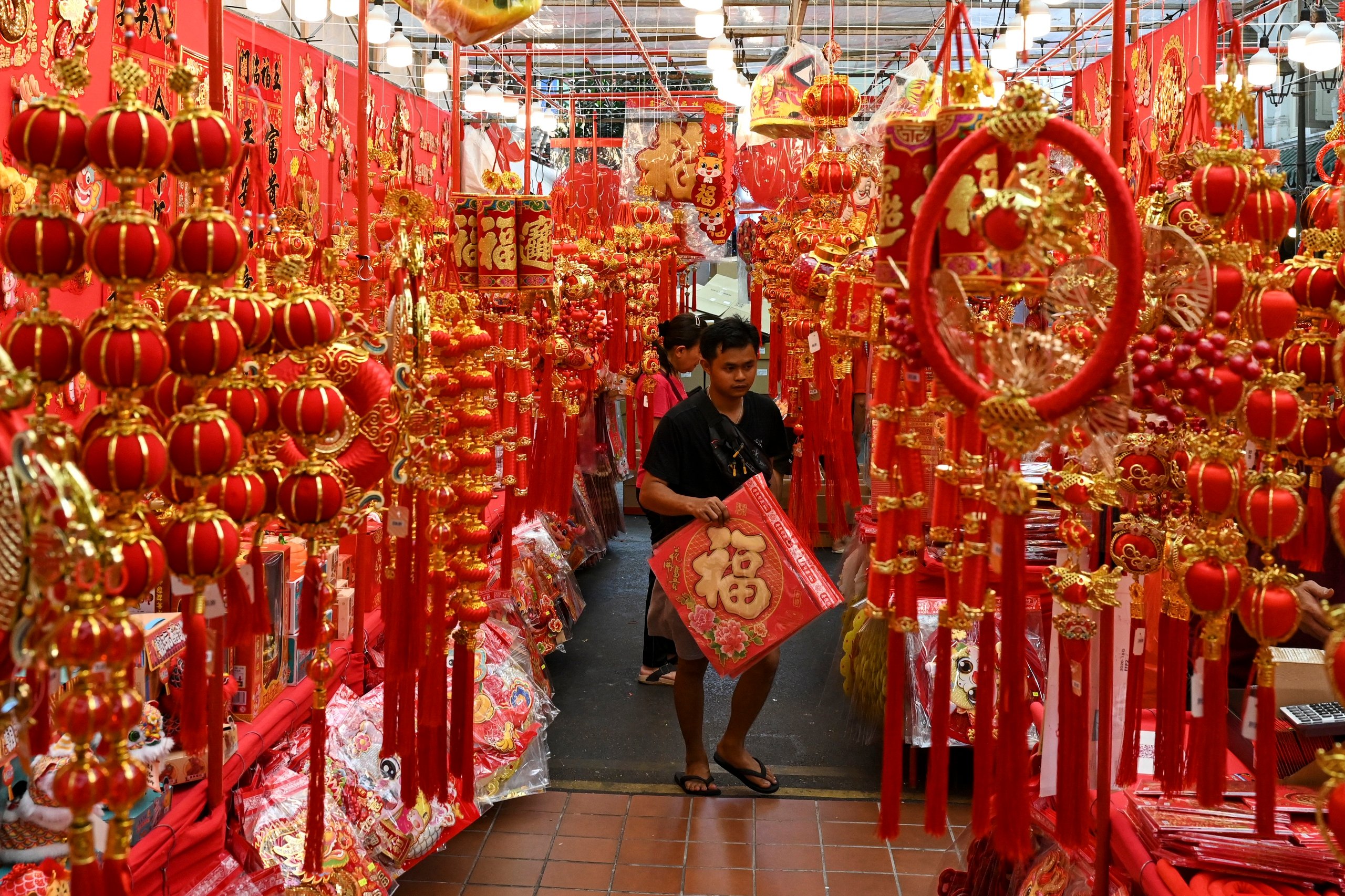
A shop selling Tet decorations in Chinatown in Singapore
Unlike normal days, on New Year’s Eve, parents let their children stay up late to welcome the New Year. Some people even believe that the longer children stay up after New Year’s Eve, the longer the child and their grandparents and parents will live. In the house, all the lights are turned on and all the doors are opened to welcome fortune and prosperity.
After the first day of the Lunar New Year, some people burn incense to welcome the God of Wealth while others go to the temple. People also check the almanac to know the appropriate date, time and direction to travel.



Underwater dragon dance performance at the aquarium of Resorts World Sentosa, Singapore on January 25.
On the first day of the New Year, children will send New Year greetings to their grandparents and parents and receive lucky money. This is the day to visit relatives and close friends. According to tradition, when visiting a house on New Year's Day, people often bring tangerines as gifts for the homeowner because the word in Chinese sounds like "luck" and "fortune".
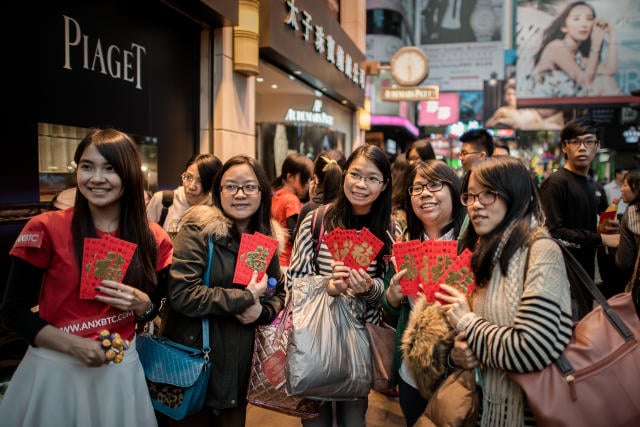
Lucky money is indispensable during Lunar New Year in many countries.
On the second day, people will display auspicious paintings to welcome the God of Wealth. This is also the day when married women return home to visit their parents.
The third day is a day of rest and people do not usually visit because it is believed that ghosts roam the earth on this day, so outdoor activities can bring bad luck. People in business and trade usually do not open until after the fifth day.
Source link








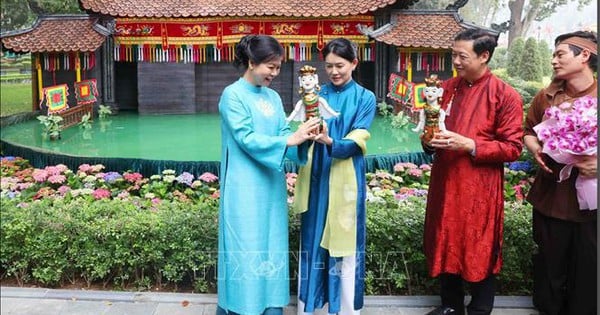




















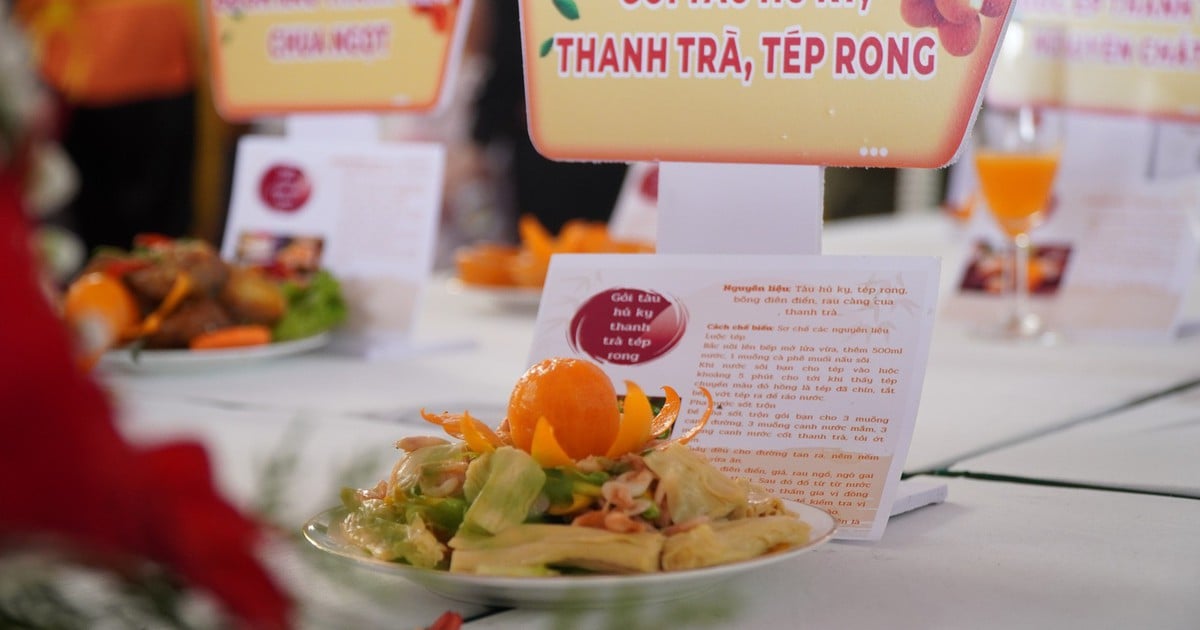





![[Photo] "Beauties" participate in the parade rehearsal at Bien Hoa airport](https://vstatic.vietnam.vn/vietnam/resource/IMAGE/2025/4/11/155502af3384431e918de0e2e585d13a)















































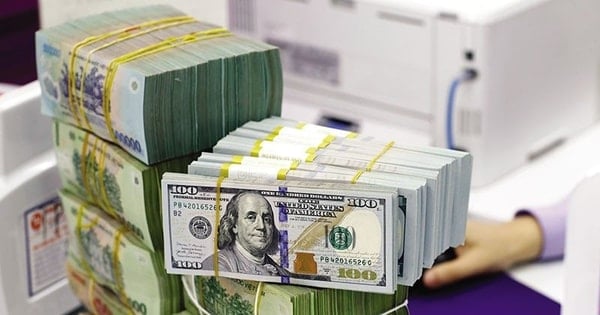













Comment (0)